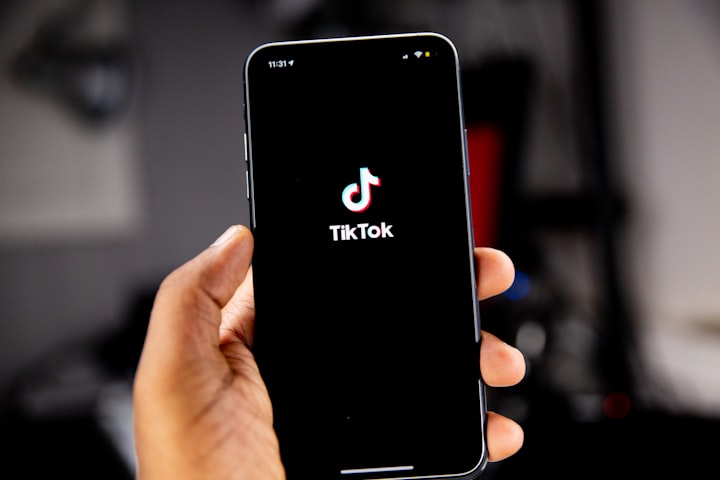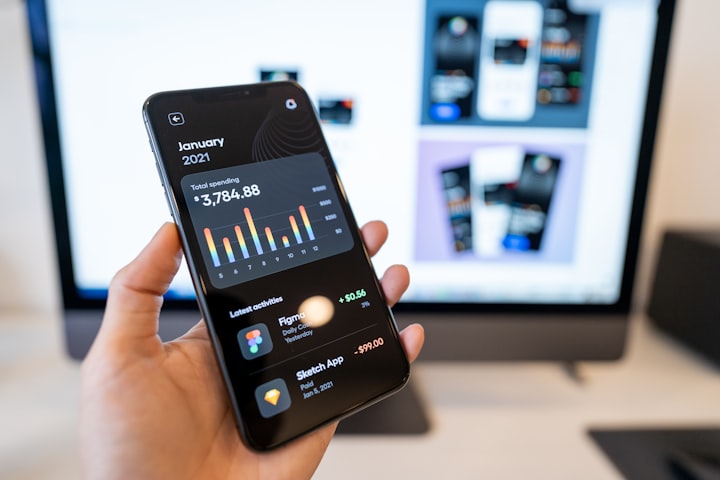ICYMI: Everything you need to know about the TikTok hearing...
Key takeaways and background information.

The CEO of TikTok, Zhang Yiming, testified before congress in an attempt to better defend the company's data collection practices and further explain the platform's independence from China.
Lawmakers began the hearing by making the case that the app should simply be banned. The main concern surrounded the issue of national security. It is important to note that a lot of the issues mentioned were not specific to TikTok alone, but the commitee stressed TikTok's role specifically, in the issues.
It is important to note, the head of TikTok in the United States, Vanessa Pappas, testified before a subcommittee of the Senate Commerce Committee in November 2020. The hearing was focused on the national security implications of TikTok's ties to China and its handling of user data.
At the time, there were concerns that TikTok's parent company, ByteDance, was sharing user data with the Chinese government. The Trump administration had also attempted to ban TikTok in the United States, citing similar concerns. Additionally, there were concerns about the app's content moderation policies and its potential impact on children and teenagers.
During the hearing, Pappas defended TikTok's data privacy and security practices and emphasized that the app was run by a U.S.-based team that was separate from ByteDance. She also stated that TikTok stored U.S. user data in the United States and backed up that data in Singapore. Pappas also addressed concerns about content moderation, stating that TikTok had hired more content moderators and had implemented new policies to address misinformation and hate speech on the platform.
The hearing was part of a broader debate about the role of technology companies in society and the need for stronger regulations to protect user privacy and prevent the spread of harmful content online. While Pappas' testimony did not lead to any immediate policy changes, it did raise awareness of the issues surrounding TikTok and other social media platforms, and it helped to spur further discussions about how to address these issues.
It is important to note that there is no official policy or position of the US government advocating for internet protectionism. While there have been discussions and debates about regulating the internet, particularly in regards to issues such as data privacy and online censorship, these discussions do not necessarily equate to a desire for protectionism.
That being said, there are some arguments that have been made in favor of protecting certain industries and technologies in the United States. For example, some proponents of protectionism argue that it is necessary to protect domestic industries and jobs from foreign competition. In the context of the internet, this could translate to supporting domestic tech companies and limiting competition from foreign companies.
TikTok has become a global sensation since its launch in 2016. The short-form video app has quickly gained popularity among teenagers and young adults, and it now boasts over 1 billion active users worldwide. There are several reasons why TikTok has become so popular:
Entertainment value: TikTok's primary appeal is its entertainment value. The app allows users to create and share short, creative videos set to music or other audio tracks. The videos can be funny, heartwarming, or just plain entertaining, and they often feature dance routines, lip-syncing, and other forms of creative expression.
Algorithmic feed: TikTok's algorithmic feed is another key factor in its popularity. The app's algorithm is designed to show users content that is tailored to their interests, based on their behavior and preferences. This means that users are constantly discovering new content that they are likely to enjoy, which keeps them engaged and coming back for more.
Viral challenges and trends: TikTok is also known for its viral challenges and trends. These are usually initiated by popular creators or brands and involve users creating and sharing videos that follow a specific format or theme. These challenges and trends have helped to create a sense of community on the app and have contributed to its rapid growth in popularity.
Accessibility: TikTok is designed to be accessible and easy to use, even for people with little or no video editing experience. The app provides users with a range of tools and filters that make it easy to create and edit videos, and it has a simple, intuitive interface that makes it easy to navigate.
Social media integration: Finally, TikTok's integration with other social media platforms has helped to boost its popularity. Users can easily share their TikTok videos on other platforms like Instagram and Twitter, which has helped to increase its reach and exposure.
Overall, TikTok's popularity can be attributed to its entertainment value, algorithmic feed, viral challenges and trends, accessibility, and social media integration. Its unique combination of these factors has made it a cultural phenomenon and a significant player in the social media landscape.
About the Creator
the kitchen sink.
In the kitchen sink, we look for all things we can consume that benefit our life! Knowledge is power and health is wealth. We’re here to eat and spill the tea. Grab a dish.






Comments
There are no comments for this story
Be the first to respond and start the conversation.